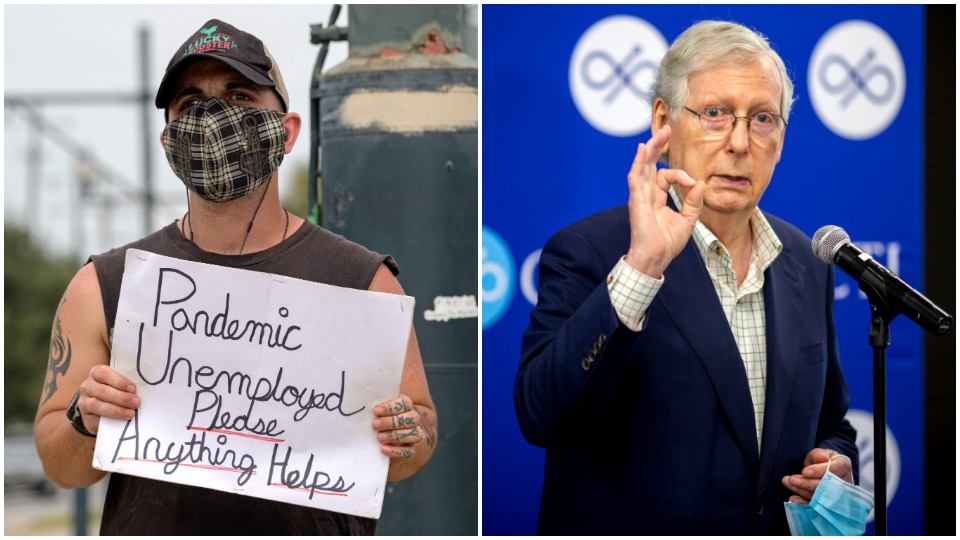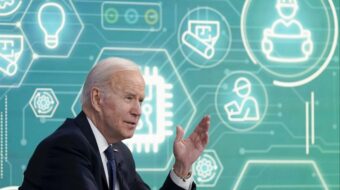
WASHINGTON—Some 3.72 million people lost their jobless benefits at the end of August, the Bureau of Labor Statistics reported on Sept. 24.
And even though those jobless workers were thrown off the aid rolls, millions still remain. Through the end of August, more than 26 million workers received state-funded benefits, federally-funded benefits, or benefits from other, smaller programs. That’s 17.8% of the nation’s 146 million workers and more than double the official 8.2% joblessness rate in the BLS release.
The data, from the weekly unemployment insurance claims report, also reveal 79.5% of the people who lost unemployment insurance came to the end of the federal government’s special $600 weekly benefit checks, while the rest lost state-provided jobless aid.

Those $600 checks especially aided people who for various reasons, including past and present congressional racism, do not qualify for regular state-paid unemployment insurance. Among them are “gig economy” workers, “independent contractors” such as port truck drivers, farmworkers—who are mostly Latinx—and home health care workers, who are mostly Black.
The lost benefits data run two weeks behind the numbers for people newly applying for jobless aid. Those weekly numbers continue to stay high: 1.5 million applicants in the week ending Sept. 19, due to the depression produced by forced closures needed to combat the coronavirus pandemic.
The $600 weekly benefits program stopped taking new applicants on July 31, when eligibility ended. Senate Majority Leader Mitch McConnell, R-Ky., has killed the House-passed HEROES Act (HR6800), which would have reinstated those benefits and extended them through Jan. 31. Back in March, Senate Democrats forced McConnell to accept the $600 weekly benefits during debate on the CARES Act.
“Last week was the 27th straight week total initial [unemployment] claims were far greater than the worst week of the Great Recession” a decade ago, Economic Policy Institute senior analyst Heidi Shierholz said in tweets on joblessness. “We’ve hit a grim milestone. Most states provide 26 weeks of regular benefits. That means last week was the first week many workers had exhausted their regular state unemployment insurance.”
But the situation could have been even worse, she adds.
“The good news is that after an individual exhausts regular state benefits, they can move onto Pandemic Emergency Unemployment Compensation, which is an additional 13 weeks of regular state unemployment insurance, and is only available to people who were on regular state unemployment insurance,” she said.
That PEUC number is already starting to rise, the BLS jobless benefits report shows. In the week ending Sept. 5, 1.63 million people who had lost regular state benefits applied for the pandemic emergency funds, 104,479 more than in the week before.
ELECTION 2020: Everything you need to know to vote in your state












Comments